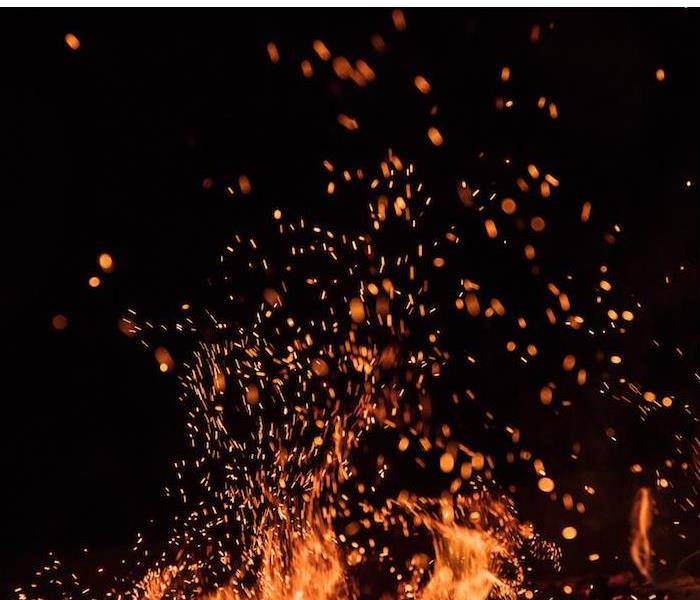Control Your Backyard Fire | SERVPRO® of Cape Girardeau & Scott Counties
7/21/2022 (Permalink)
Backyard fires mean s’mores, hot dogs and scary stories. On a beautiful night with your family, this all adds up to creating some priceless memories.
We use fire not only for family time, but to control pests, to cook our dinner, to clean up the yard and to entertain us right from home. Even when you think you have the fire in control, though, it can become dangerous.
The National Park Service has found that [ 85% of wildfires are started by humans.
While our overall wildfire risk is typically low, we know that a fire can happen anywhere at any time. With the Ozarks nearby, dry weather can quickly create a high risk, and it is estimated that our wildfire risk is growing each year. In February 2022, we saw a large fire happen in a row of storage units that caused pretty devastating damage. It is always wise to be fire-aware, no matter where you are burning.
This does not mean you can’t enjoy a flame in your backyard. Grill your hamburgers, roast your marshmallows, clear your leaves and scare everyone with that terrifying tale.
Burn according to regulations and guidelines, and ensure you have safety measures in place each and every time. Minimize your risks while you continue to enjoy your backyard exactly as you want to.
Open flames will always carry a risk, but grilling, campfires, fireworks and fire pits are the most frequent fire starters. Grills cause an average of 8,800 home fires each year, primarily due to user error. Make sure you have checked your propane tank or gas line for leaks before you start your grill, and keep your eyes on a hot grill even after the cooking is complete.
When you build a campfire, choose a location that is a safe distance from structures or cars, and only use a lighter or matches to start the fire. Wood should be the only fuel source you use once your fire is blazing, and even after the chocolate is tapped out and the flames are gone, you should still watch the embers to ensure there are no additional sparks.
Fire pits are a common item in backyards these days, as they offer the camping feel from the comfort of home. These pits should still be used with the same caution as a regular campfire, and a portable pit should never be placed on a wooden surface or an area that has an overhang.
It might seem like an easy solution to burn excess construction materials or other household waste in your fire pit, but you should only burn approved firewood.
While fireworks are permitted in most of our areas, they are not allowed within a certain distance of schools, hospitals or gas stations. If you choose to celebrate with a bang, make sure to take a look at all the city ordinances and ensure you have plenty of room to both light and land the explosives away from trees, structures and dry areas.
Even though there are risks, fires and materials that combust still have a purpose in our daily lives. In the fall when the trees lose their leaves, burning them may be your only means of cleanup if you do not live in an area that offers curb pickup.
Permits are required if your fire is going to reach a certain size, and open burning is only allowed during the hours of 9 a.m.–5 p.m. There are also several items that are prohibited in backyard fires, so be sure to check all the city ordinances for both the regulations and any burn bans before you start clearing your debris.
Keeping your yard clean of debris can actually aid in preventing wildfires and, along with some strategic landscaping, can protect your home. Make sure you know what to burn when, and always follow fire safe regulations so you can keep your fire in control.
If you have yard tools, you likely also have gas stored somewhere near them. Improper storage can have terrible results, so make sure your gas is only in approved containers and kept far away from kiddo hands. Only use your gas for its intended purpose—it is not a way to make your campfire roar to life!
If you are going to use any kind of flame outside, check the weather and any current fire warnings or burn bans. Windy or dry conditions are not good days to burn, so skip the fire and save the marshmallows.
If you do have fire damage, call us. SERVPRO has the equipment and training to handle every complicated aspect of fire recovery, and we want to restore as much of your property as possible, as quickly as possible.
Burn safely outdoors. And save some chocolate for us! If you have experienced fire or smoke damage, contact us today to get restoration started faster.





 24/7 Emergency Service
24/7 Emergency Service
